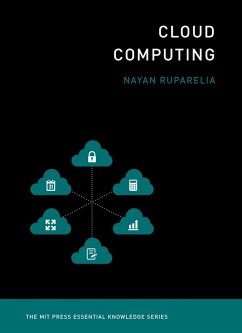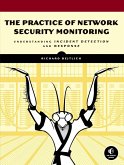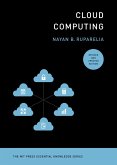Most of the information available on cloud computing is either highly technical, with details that are irrelevant to non-technologists, or pure marketing hype, in which the cloud is simply a selling point. This book, however, explains the cloud from the user's viewpoint—the business user's in particular. Nayan Ruparelia explains what the cloud is, when to use it (and when not to), how to select a cloud service, how to integrate it with other technologies, and what the best practices are for using cloud computing.
Cutting through the hype, Ruparelia cites the simple and basic definition of cloud computing from the National Institute of Science and Technology: a model enabling ubiquitous, convenient, on-demand network access to a shared pool of configurable computing resources. Thus with cloud computing, businesses can harness information technology resources usually available only to large enterprises. And this, Ruparelia demonstrates, represents a paradigm shift for business. It will ease funding for startups, alter business plans, and allow big businesses greater agility.
Ruparelia discusses the key issues for any organization considering cloud computing: service level agreements, business service delivery and consumption, finance, legal jurisdiction, security, and social responsibility. He introduces novel concepts made possible by cloud computing: cloud cells, or specialist clouds for specific uses; the personal cloud; the cloud of things; and cloud service exchanges. He examines use case patterns in terms of infrastructure and platform, software information, and business process; and he explains how to transition to a cloud service. Current and future users will find this book an indispensable guide to the cloud.
Dieser Download kann aus rechtlichen Gründen nur mit Rechnungsadresse in A, B, BG, CY, CZ, D, DK, EW, E, FIN, F, GR, HR, H, IRL, I, LT, L, LR, M, NL, PL, P, R, S, SLO, SK ausgeliefert werden.









